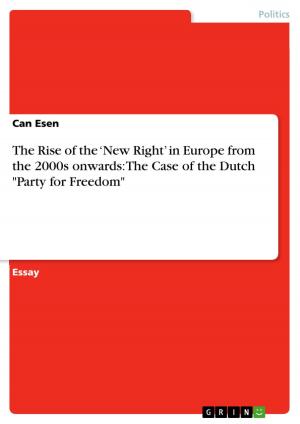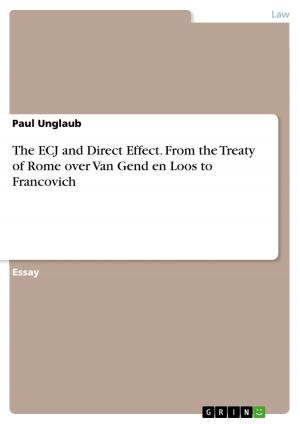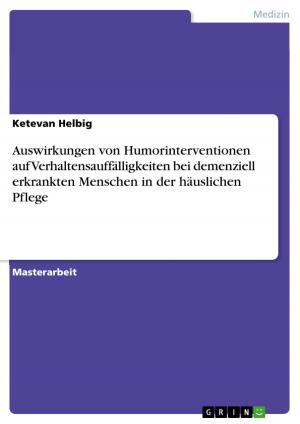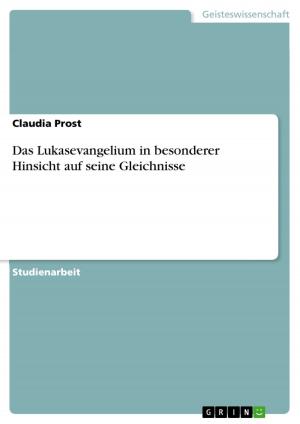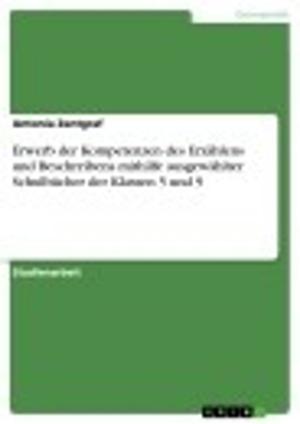What is Wilderness? Different Views in the Movie 'Crocodile Dundee'
Nonfiction, Reference & Language, Study Aids, ESL, Foreign Languages| Author: | Kathrin Metzger | ISBN: | 9783656832683 |
| Publisher: | GRIN Verlag | Publication: | November 6, 2014 |
| Imprint: | GRIN Verlag | Language: | English |
| Author: | Kathrin Metzger |
| ISBN: | 9783656832683 |
| Publisher: | GRIN Verlag |
| Publication: | November 6, 2014 |
| Imprint: | GRIN Verlag |
| Language: | English |
Seminar paper from the year 2011 in the subject English Language and Literature Studies - Culture and Applied Geography, grade: 2,3, Johannes Gutenberg University Mainz, language: English, abstract: In short, the United States Wilderness Act of 1964 defines Wilderness as '[...] an area where the earth and its community of life are untrammelled by man, where man himself is a visitor who does not remain.'. However altogether it took ten pages to describe and define Wilderness in said Wilderness Act. Roderick Nash, the author of Wilderness and the American Mind states that the '[...] usual dictionary sense of the word implies hostility on man's part [...]', and looking at the definition of Wilderness in Webster's Dictionary supports this statement: 'a tract of land, or a region, uncultivated and uninhabited by human beings, whether a forest or a wide, barren plain [...].'. Both definitions define wilderness as a place where humans are absent. The movie Crocodile Dundee, although displaying the bush as a dangerous place also has numerous scenes in which they film the beauty of the bush. So wilderness no longer has to be dangerous, but can be anything people want it to be. Crocodile Dundee and the extreme change of environment in the movie - from the bush to the city - is an example that can show how different people have different perceptions of wilderness, depending on how and where they grew up: a New York City girl versus a man born and raised in the Australian outback.
Seminar paper from the year 2011 in the subject English Language and Literature Studies - Culture and Applied Geography, grade: 2,3, Johannes Gutenberg University Mainz, language: English, abstract: In short, the United States Wilderness Act of 1964 defines Wilderness as '[...] an area where the earth and its community of life are untrammelled by man, where man himself is a visitor who does not remain.'. However altogether it took ten pages to describe and define Wilderness in said Wilderness Act. Roderick Nash, the author of Wilderness and the American Mind states that the '[...] usual dictionary sense of the word implies hostility on man's part [...]', and looking at the definition of Wilderness in Webster's Dictionary supports this statement: 'a tract of land, or a region, uncultivated and uninhabited by human beings, whether a forest or a wide, barren plain [...].'. Both definitions define wilderness as a place where humans are absent. The movie Crocodile Dundee, although displaying the bush as a dangerous place also has numerous scenes in which they film the beauty of the bush. So wilderness no longer has to be dangerous, but can be anything people want it to be. Crocodile Dundee and the extreme change of environment in the movie - from the bush to the city - is an example that can show how different people have different perceptions of wilderness, depending on how and where they grew up: a New York City girl versus a man born and raised in the Australian outback.

